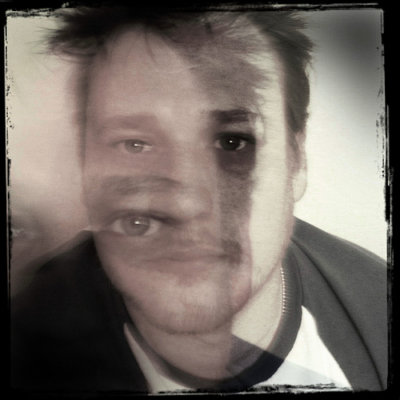Flashback vs Hallucination vs Delusion – What is the Difference?

By: David Ensor
by Andrea M. Darcy
Haunted by images that you think are traumatic memories, but are not sure? Does this mean you are suffering flashbacks, or are they hallucinations? Or could it be you are actually delusional – and does the difference matter?
Flashback vs hallucination vs delusion
A flashback is when out of the blue you are overcome by such an intense memory that it’s as if for a moment you are back in time. Usually flashbacks are a visual replay in your head, although it is possible that a flashback can simultaneously involve other senses, such as feeling tingles on your skin or smelling an odour.
A hallucination, on the other hand, is when you perceive something as real that is not only not real, but never happened. Hallucinations are often thought of as ‘seeing things’ that aren’t real, but visual hallucinations are not the only kind. You can have a hallucination using any sense at all – auditory, tactile, or even a smell or taste.
A delusion is actually not a visual or sensory experience at all, but rather a belief. It’s when you hold something to be true that there is no factual evidence for and that does not fit with the society you are living with.
So what are some examples of flashbacks, hallucinations, and delusions?
Flashbacks: If you were the victim of a trauma, including things like a natural disaster, mugging, or childhood abuse, you might find experiences in the present day trigger horrible strong visuals of the past event to run through your head. These are flashbacks.
Hallucinations: If you feel that a strange man is always following you, or constantly smell gasoline, or hear a woman always calling your name, or feel like someone is always tapping you on the shoulder, you are experiencing hallucinations.
Delusions: If you are sure that voices from the radio are talking just to you, that your neighbour is a spy that is watching you, that your teacher can read your mind, or are convinced that you are developing a superpower, then you are suffering from delusions.
Why do people confuse these terms so much?

By: thierry ehrmann
Hallucinations can often be linked to flashbacks, and experienced together, which is why people can confuse these two terms.
For example, going back to the mugging victim. If that mugging victim has a flashback, then suddenly hears the mugger saying horrible things in her ear he never said in reality, and then sees his face in her mind when really he was wearing a balaclava, then she is experiencing hallucinations along with flashbacks – a mix of real and imagined.
Hallucinations and delusions are also often experienced together, both being main symptoms of psychosis.
Related mental health issues
Flashbacks are based on real trauma. They are often a part of post traumatic stress disorder (PTSD) and are also common for those who have suffered childhood abuse.
Hallucinations and delusions, on the other hand, are linked to psychosis, which means youare out of touch with reality and your mind is essentially playing tricks on you.
Psychosis can be a sign of schizophrenia but this is not always the case so you should not jump to conclusions. It can also be a possible symptom of any of the following:
- a personality disorder, such as
- bipolar disorder
- depression
- sleep problems
- substance abuse
- postnatal psychosis.
Real memory or just one I’ve made up?
If you’ve experienced a life trauma, or a childhood trauma has been triggered, it’s important not to get completely hung up on the difference between flashbacks and hallucinations and to instead just seek support.

By: Ansel Edwards
What matters is that you have experienced a difficult situation and deserve help with it. And if your trauma did take place when you are a child,what you perceived as real from your perspective as a child is just as traumatic as any ‘fact’.
Will my flashbacks, hallucinations, and/or delusions every go away?
Flashbacks can feel like mental and emotional torment. And hearing you are actually experiencing hallucinations or delusions can feel overwhelming.
The important thing to keep in mind is that all of these ‘mind patterns’ are treatable. While sometimes medication is recommended, pending on what larger mental health issue they are a symptom of, all have been found to benefit from psychotherapeutic intervention.
Cognitive behavioural therapy (CBT) has been found useful for both PTSD (flashbacks) and psychosis. Psychosis has also been found to respond well to family therapy.
Again, remember that these three things are all symptoms of bigger issues. If you are suffering or worried, book a session with a private counsellor or therapist or talk to your GP who can refer you to a mental health professional. If you’re feeling scared and feel you need to talk to someone immediately, consider calling one of the UK’s hotlines, such as the Samaritans.
 Andrea M. Darcy is a health and wellbeing expert, trained in person-centred counselling and coaching. She often writes about trauma, relationships, and ADHD, and advises people on how to plan their therapy journey. Find her on Instagram @am_darcy
Andrea M. Darcy is a health and wellbeing expert, trained in person-centred counselling and coaching. She often writes about trauma, relationships, and ADHD, and advises people on how to plan their therapy journey. Find her on Instagram @am_darcy





I was abused from the age of 3 until I was 6. Since getting with my fiancée almost 9 years ago my life was an endless cycle of physical, emotional & sexual abuse.Because of this I have always believed it was all my fault. It has to be. I must be a person who was born to be treat like this. I feel guilt & shame for allowing it to happen, constantly believe that everyone who looks at me knows instantly, & that they know it is my fault. I regularly have hallucinations & flashbacks separate to each other. But sometimes it’s like they join together, I’ll have fully immersive flashbacks where, like my worst delusional hallucinations my entire world changes around me. But instead of a fabrication it will be a memory. I’ll be the age of the memory & the content will happen to me exactly as it did then,. including every feeling, the pain, the fear. Even the smell & taste. My mental health has me, on good days, unable to leave the house, terrified & hallucinating. I feel guilty talking to him about the flashbacks. I don’t want to put him through the pain.
Thank you for sharing your story. It’s certainly not your fault. A sad side affect of abuse is that it leaves one with a core belief that one is unworthy, meaning that one attracts further experiences that support this erroneous belief. Of course the only person who can decide our worth for us has to be ourselves, however hard that might be to accept and find within, and however long a road, it simply has to come from within, not other people. No matter how many people we turn to for a self of worth it will never work if we don’t feel it ourselves. This is where a counsellor can step in and help us on our journey to realise that we are as worthy as any other human, that we don’t have to ‘earn’ worth, we just have to recognise our own intrinsic worth. As soon as we decide we are worthy we can begin to attract people into our lives who support this.
hey, I’ve had one ‘flashback’? I don’t know wether you could call it that it was just this brief image that I saw. I haven’t experienced any sensory feelings or emotions, and I’ve never experienced any nightmares. The image made me laugh initially as I just thought it was so unbelievable and fake, but then my mind started to overthink it and I’ve entered this obsessive cycle of overthinking. Deep down I know that this never happened, but my mind still plays on the idea constantly. Is there any possibility this memory could be true, or am I just worrying about things I see online?
Don’t worry too much. It’s actually normal to have what seems like a ‘flashback’ now and then. Especially if you are under stress, or not sleeping, or had some kind of experience where the past rose up recently even. If it repeats, or becomes ongoing, then talk to your doctor. They can rule out things like vision issues, for starters.
Thanks for the advice, i haven’t experienced anything else similair to the ‘flashback’, it still concerns me but i highly doubt it ever happened. I do wonder if there’s any possibility that it could be a repressed abuse memory, but then again if it was I would certainly show other symptoms and there would be body memories and nightmares etc. Seen as I’ve never had these and there’s literally nothing apart from my thoughts to suggest it happened, I’m just trying not to dwell on it too much and focus on my positive thoughts. Thanks for the advice. X
I’ve been having hallucinations of a night about ten years ago but everyone I’ve spoken to has said that it didn’t happen but I think they may either be trying to protect me from something that happened that was traumatic or the person who provoked it. I’m not sure how to figure it out. initially I had bizarre delusions with hallucinations, audio and visual as well as feeling things on my skin, I became convinced of other things that hadn’t happened but it only lasted a few day’s and now I’m having one that is non bizarre and on going. Every now and then I get a jolt from my memory as if to say ‘that definitely did happen’. Is it possible to interfere with ptsd by suggesting things at the traumatic event as to disguise it as something else?
Hi Erica, we aren’t clear what you mean when you say ‘interfere with PTSD’. Do you already have a diagnosis of PTSD? And we aren’t clear who ‘everyone’ refers to, if that is family, or if you are an ex-soldier, for example. What we would say is that you are suffering anxiety and paranoia. These alone are a lot to bear. If you aren’t already seeing a counsellor, we would highly suggest you do seek some support. If you are already seeing a therapist, do talk about this with them. That is what they are there for. Hope that helps.
I was abused mentally and physically in my place of work. The abuser was adept in hypnotism and made me forget the abuse at that time but did warn me that I’ll recollect all the incidents around 5 years later. I am having flashbacks now. But no body believes me. I don’t know where to seek help. People think I am mad and imagining things up. The abuse went on for around 2 years.
Hi Ebony, that’s a lot to deal with by yourself. We recommend you talk to a counsellor or therapist. You can speak to your GP and they’ll put you on the NHS waiting list, which can be quite a wait. So if you are working, it’s worth checking to see if your workplace insurance covers sessions with a therapist. Otherwise, you might find our article on how to find low cost counselling useful bit.ly/lowcosttherapy.
I was going to the same place for 17 years throughout the years I saw 3 different counselors, they all said I have ptsd and they where flashbacks. I srarted going to a different place for about 6 months now , they are saying that it is delusional thoughts I don’t know what to thing anymore
We are sorry about the different diagnosis, Julie. The problem with psychological diagnosis is that they are not illnesses you can find under a microscope they are just terms created by researchers to attempt to describe groups of people with similar symptoms. So maybe the question here isn’t ‘what is my condition’. It might be, ‘are these people helping me, am I managing my symptoms better, do I feel am making progress, can I grow to trust this therapist’.
hi, this article was of great help to me, but “bipolar disorder” is listed as a personality disorder which is very incorrect, you might want to change it!
Well spotted, and fixed! We really appreciate our readers. We are not perfect, we make mistakes, and together with our readers we can make the information we share more and more accurate.
2 1/2 years ago I had a realisation that I was abused sexually by my parents and many others throughout childhood, from 0 -12 years old. I had always had some weird memories that I never understood. But something triggered a terrible period of realisation. I had intense flashbacks several times a day for about 8 months. It was very traumatic. I was diagnosed with a dissociative disorder. Half of my childhood was completely forgotten even at the time. I came to terms with it… kind of… as much as you can I guess.
Now nearly 3 years later I struggle with believing anything ever happened… although I can still remember all the flashbacks and the huge time f crazy crazy trauma. Flashbacks were combined in my head and physically. But I just wonder now if I am crazy. Did all that really happen.?
Hi Ellen, we are sorry to hear you’ve been through all this. And we get it. It’s its own separate version of hell, the never knowing. Unfortunately, barring a time machine being made, we can’t ‘know’. So it becomes about putting the focus off ‘what really happened’, which makes anyone feel crazy, and onto ‘how am I feeling right now, what symptoms am I facing, what can I do to manage and feel better’. We would suggest you read our article directly about this, https://www.harleytherapy.co.uk/counselling/how-can-i-remember-childhood-trauma-abuse.htm
Great article, but I would like to add that PTSD stands for “Post-Traumatic Stress Disorder”, “Post-Traumatic Shock Syndrome”. Again, thank you for your contribution to the field!
Thank you Brandon for pointing out that typo! We fixed it. We are a small team doing the work of a big team, we need more eyes!
Hi. This is going to be a weird comment, so you’ve been warned.
Basically, I remember events from my past life. I remember very vivid events from varoius parts of life, but the concern comes from this past life’s childhood. I had an abusive father (emotionally, physically, and sexually), and I remember a lot of very uncomfortable details. I had a panic attack for the first time in this life upon the realization that my past life father had r*ped me as a young boy (I don’t think I was older than 8), which opened up a can of worms. I don’t know if I have PTSD or something similar, but since that initial memory, I’ve had several small snippets of different sensory information or memories. Mostly visual, with occasional auditory or touch. I could describe in detail what the environment, and even lighting was like. There have been a few instances where I’ve felt like I was back there, barely conscious of my actual surroundings. I don’t believe these memories to be false, but I also hesitate to seek help in this life, despite how it’s effecting me now. I don’t want a therapist or counselor or someone to tell me that my belief in past lives is false. I know what I believe. But I know that it’s affecting me in an unhealthy way in this life. The online communities I’m in believe that it’s “ableist” to claim to have trauma from past lives, but still, I know what I feel. I rarely had a problem with panic attacks or dissociating until having that initial memory, but they seem to have gotten significantly worse, to the point of affecting my daily life. My physical and mental health are suffering because of this. Still, I’m afraid of someone telling me I’m being delusional. I just don’t know what to do.
Apologies for the long and slightly off-topic comment. I just don’t know where else to turn at this point. Thank you for listening to my rambling.
Hi Ryouta. There are two things that we’d say. First, sometimes if we have a trauma in this life that is too overwhelming, our mind creates a past life memory in order to deal with it. And some people find that by working on healing the past life memory they feel better about their current life. Ideally, working with a therapist to identify current life trauma is more powerful, but it’s best to work with what you can handle. So if you want to work through the lens of a past life, that is your perogrative. Otherwise, there are psychotherapists that would not find it strange if you want to talk about past lives and might be a firm believer themselves. It depends on the therapist and also their training. These therapists are more likely to be trained in psychosynthesis, transpersonal, or Jungian schools of thought. Or you might find a clinical hypnotherapist who works with past lives. Otherwise there are alternative practitioners but that is beyond our scope to suggest.
I Really Don’t Know If What Happens To Me Is Related To Any Of This But, Every Now & Then I Get These Like, Flashbacks.. But They’re Not Really Flashbacks, I Start Daydreaming About Certain Things That Happened, That I Literally Had Nothing To Do With & After I Stop I Feel Dizzy/Weird Sometimes I Can’t Even Explain To Someone What Happened Because I Literally Don’t Remember. I Can’t Control It, & I Hate The Feeling After It Happens. I’ve Tried Researching But Nothing Comes Close To What I Experience.. Or Maybe I Just Don’t Understand??
Hi Mona, it sounds like you have an active imagination. Sometimes if we have a very creative brain we can create stories in our head, it takes us into another world, we see complete characters, scenes, and afterwards it can feel like ‘coming back to reality’. Have you considered writing? Writing out these scenarios you see as stories? You might just be a creative person who has never been encouraged to use what might be a gift, not a curse. Best, HT.